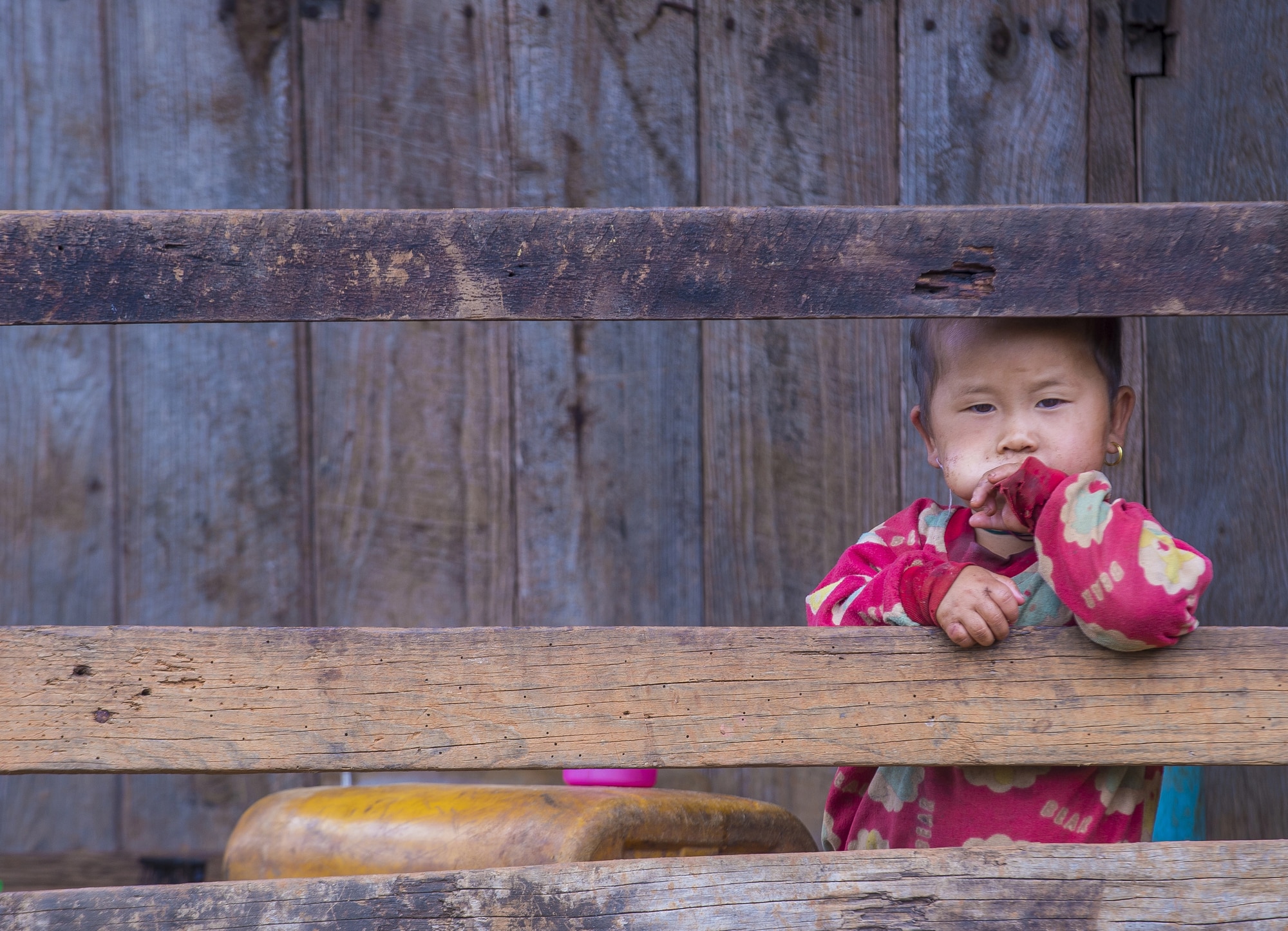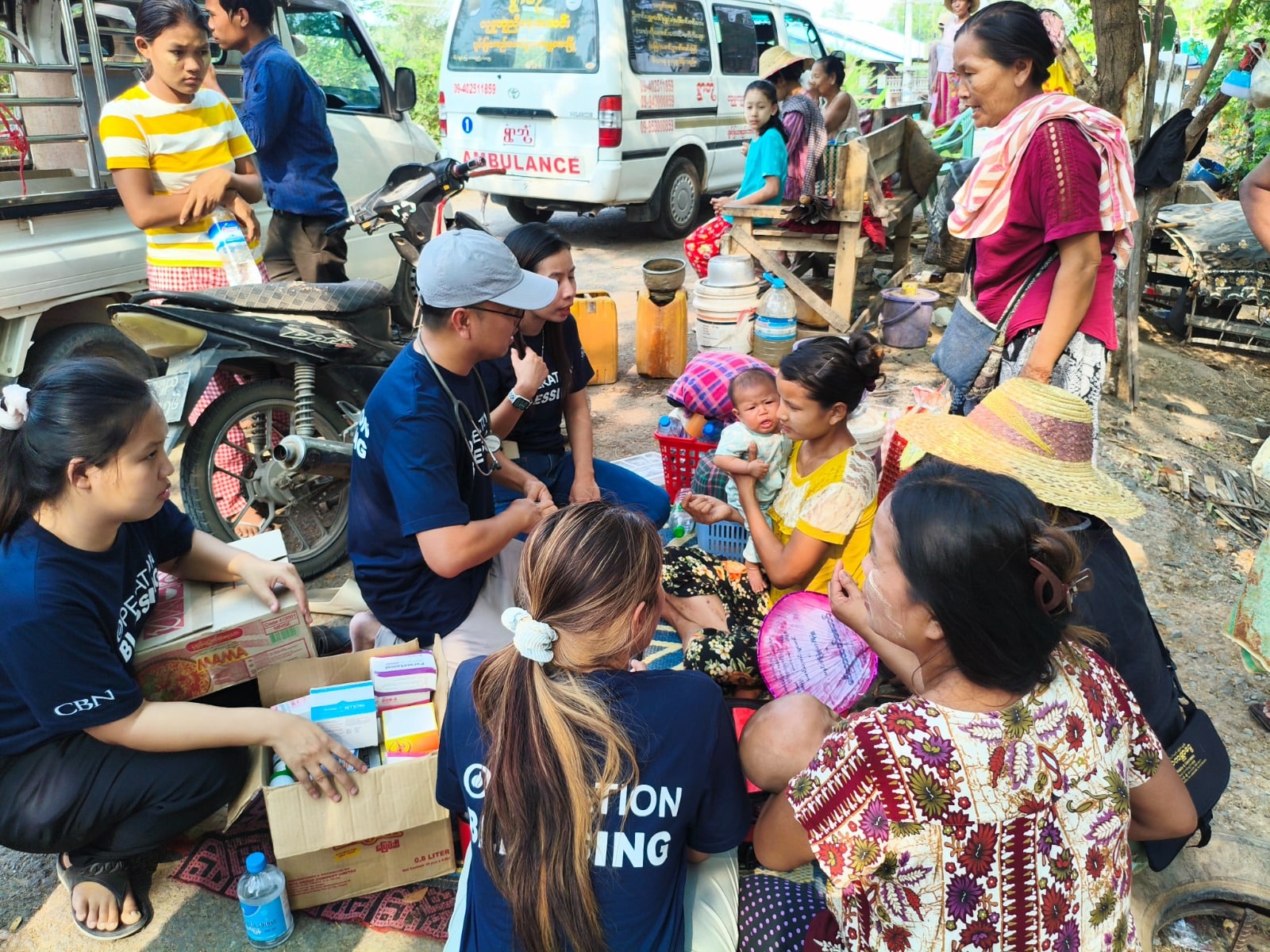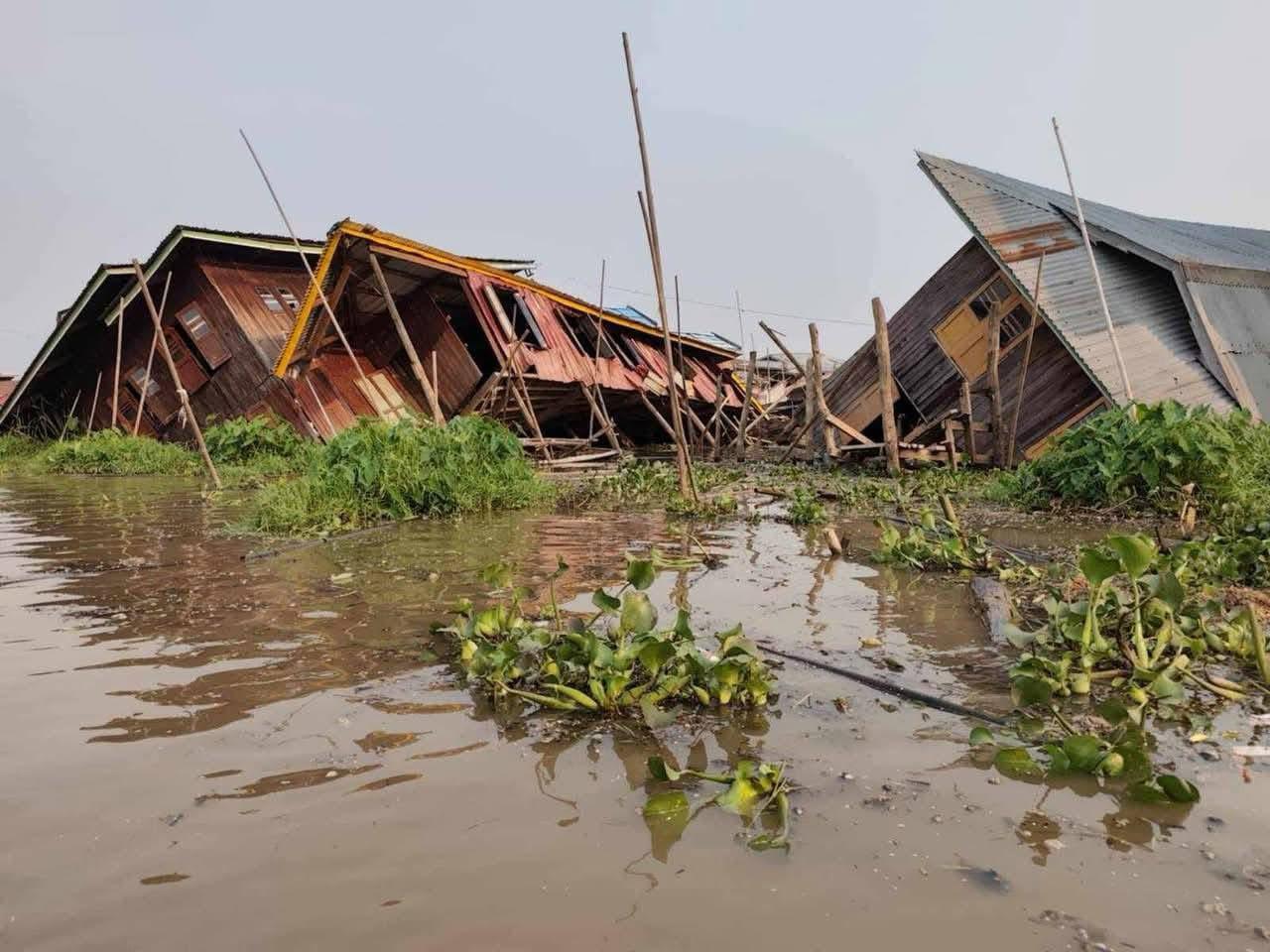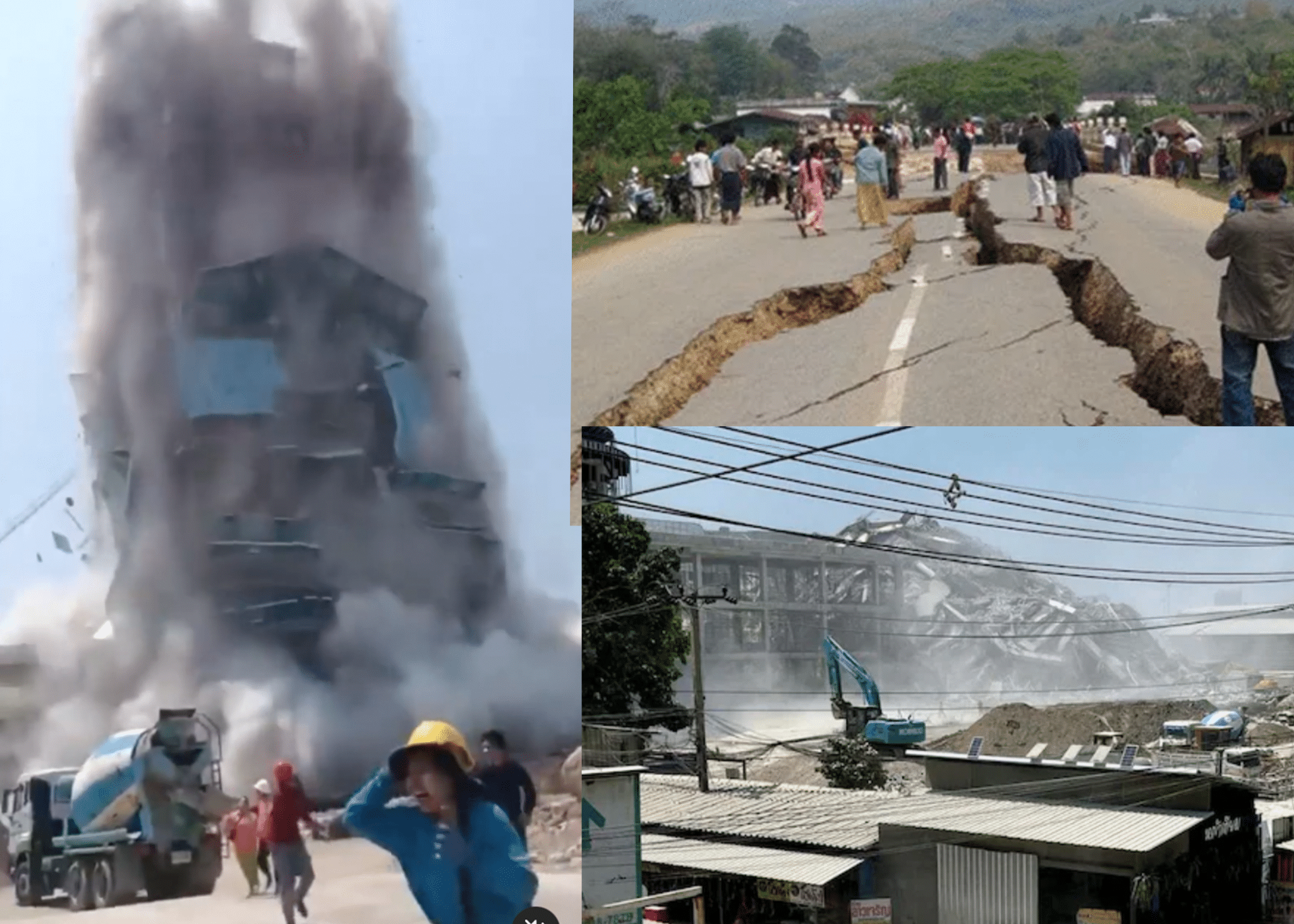
The death toll in Myanmar has reached or may have exceeded 4,000. Harsh weather has made rescue and aid a challenge. Photo of child in Inle before the earthquake from Depositphotos.com
The devastating earthquake that struck 10 days ago in Myanmar on March 28 and affected neighbouring areas, in particular Thailand, has resulted in an official death toll of 3,500, with thousands more missing and injured.
This figure, according to Salt&Light‘s sources on the ground may be under-reporting the actual devastation: As of Friday, April 4, the estimated number of deaths had reached 3,885, with 5,455 injured and 719 missing. These numbers continue to climb.
The situation has been compounded by heavy rains, exposing the homeless survivors to harsh elements and making aid difficult.
But that is not stopping aid organisations from going in. Two organisations are providing aid on the ground in the areas that are hardest hit, and they are looking for support.
World Vision: On the ground delivering urgent aid
“Myanmar was suffering from a humanitarian crisis before the earthquake. With the earthquake the situation becomes catastrophic,” said Dr Kyi Minn, National Director of World Vision Myanmar.
“The earthquake has impacted a lot of lives here and children are very vulnerable. The earthquake has severely damaged homes and key infrastructure. Many people are sleeping outdoors, fearing further collapses.
“World Vision is supporting with essential supplies such as food, water, shelter and medical supplies. We are also supporting families who lost the loved ones with psychosocial support.
“World Vision has been in Myanmar for over 30 years. All our staff are well-trained in humanitarian emergency. Our staff will be working round the clock to provide effective response and support to the community.”
World Vision has reached 1,439 people including 542 children with ready-meal kits, water, hygiene kits and non-food items.
World Vision is currently providing relief in hardest-hit townships in the Mandalay region. As of April 6, 7,920 water purification sachets had been distributed to 132 households, benefitting 660 family members including 310 children. Over 500 non-food item kits and 1,000 hygiene kits were delivered to the response areas; 1,500 child protection kits have also been procured for affected children.
As of April 6, World Vision has reached 1,439 people including 542 children with ready-meal kits, water, hygiene kits and non-food items.
World Vision aims to reach 500,000 people including 200,000 children with life-saving essentials and long-term recovery support.
How you can help and where your support will go:
- $80 can provide food for a family for a month
- $180 can provide shelter kits for five families whose homes have been damaged
- $250 can provide 10 families with access to clean water
- $350 can provide a family with emergency cash voucher to meet their basic needs for a month
- $500 can provide 20 families with hygiene kits (including soap, towels, water purification tablets, washbasins) to meet their hygiene needs
Your giving will help save the lives of children and their families impacted by this disaster.
To give, click here to access World Vision’s Myanmar Earthquake Response.
Radion International: Sending disaster response team in on Tuesday (April 8)
In the wake of the devastating 8.2-magnitude earthquake that struck near Myanmar’s border with Thailand, the region has plunged into a deepening humanitarian crisis. Entire towns lie in ruins, and the challenges of rescue and recovery are intensified by Myanmar’s ongoing political instability and armed conflict.
Access to the most affected areas remains critically limited. Roads are shattered, communication lines are down, and aid organisations have been unable to reach Sagaing – the epicentre of the quake – where an estimated 80% of the town has been destroyed.
The cities of Sagaing, Mandalay, Naypyidaw, Pyinmana, Pyawbwe, Thazi, and Yamethin have been hit hardest, with thousands of homes, monasteries, and public buildings reduced to rubble.
Radion aims to deliver urgently needed aid to the hardest-hit communities, bridging the gap where official support has fallen short.
In the absence of organised response, local communities have taken the lead. Makeshift triage zones have sprung up in temple courtyards and open fields, as hospitals are overwhelmed and running dangerously low on medical supplies.
Survivors continue to dig through debris with their bare hands, transport the wounded by motorbike, and distribute food from the limited resources they have left. In many rural areas, residents report receiving little to no government assistance, depending instead on grassroots efforts for survival.
In response to the growing crisis, Radion International is set to deploy a disaster response team this coming Tuesday. Working in coordination with local church pastors, the team aims to deliver urgently needed aid to the hardest-hit communities, bridging the gap where official support has fallen short.
The road to recovery is uncertain and steep, but amid the chaos and grief, the strength of local solidarity shines through. For those who have lost everything, each helping hand and every act of compassion brings hope in the rubble.
If you would like to contribute towards this relief effort, please visit Radion International for details (please indicate “Crisis relief” in the bank transfer to ensure your giving goes to this effort).
Providing emotional and psychological support in Thailand
Meanwhile, in Thailand, Radion has identified another urgent need. The psychological toll on survivors is immense. Families, children, and entire communities are grappling with trauma and uncertainty.
Hence the organisation will be launching a series of mental health training sessions to support those affected. Their initial focus will be in Bangkok, Chiang Mai, and northern Thailand, where many survivors have been displaced and are in need of emotional and psychological support.
These sessions will educate participants on the effects of trauma, provide guidance on how to support children and beneficiaries.
The first phase of this training will be conducted online to ensure accessibility for families, teachers, and caregivers regardless of their location. These sessions will educate participants on the effects of trauma, provide guidance on how to support children and beneficiaries, and help identify severe distress symptoms that may require further professional intervention.
Given the scale of the disaster, this approach allows the organisation to reach as many affected individuals as possible while preventing the overcrowding of already strained mental health facilities.
To support this effort, please visit Radion International for details (please indicate “Crisis relief” in the bank transfer to ensure your giving goes to this effort).
For regular updates, click on this link to join Radion’s WhatsApp chat.
RELATED STORIES:
We are an independent, non-profit organisation that relies on the generosity of our readers, such as yourself, to continue serving the kingdom. Every dollar donated goes directly back into our editorial coverage.
Would you consider partnering with us in our kingdom work by supporting us financially, either as a one-off donation, or a recurring pledge?
Support Salt&Light


